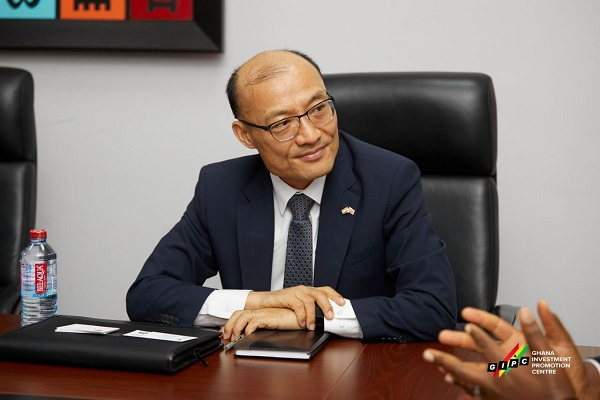China Grants Ghana Early Access to Zero-Tariff Market as Bilateral Ties Deepen

China’s Ambassador to Ghana, Tong Defa, has announced that Ghana will be among the first countries to benefit from China’s new zero-tariff treatment covering all tariff lines — a major step that reinforces the deep and longstanding partnership between the two nations.
Speaking at a press briefing on Friday, the ambassador revealed that China and Ghana had reached a broad consensus on the early harvest arrangements under their Economic Partnership for Shared Development. He described the agreement as a significant milestone in the rollout of China’s latest market-opening initiative.
According to Tong, the policy serves as a deliberate move by China to expand economic cooperation with developing countries, especially across Africa. He said the zero-tariff access would give Ghanaian products such as cocoa derivatives, cashews, rice, shea butter, textiles and handicrafts a stronger foothold in the Chinese market, while boosting domestic production capacity.
He emphasised that Ghana stands to gain not only increased export volumes but also greater industrial investment as Chinese companies seek new opportunities aligned with Ghana’s agricultural and manufacturing potential.
A Partnership Rooted in Decades of Cooperation
The ambassador noted that the new arrangement builds on a relationship that spans more than six decades. Since establishing diplomatic relations in 1960, China and Ghana have collaborated closely across infrastructure, agriculture, trade, education and health. China has supported the construction of key national assets including the National Theatre, the Bui Dam, the Cape Coast Stadium and multiple road and ICT projects.
Trade between the two countries has grown steadily, making China one of Ghana’s largest trading partners and a major source of investment in energy, telecommunications, mining and manufacturing. Thousands of Ghanaian students have also benefited from Chinese scholarships and exchange programmes, deepening people-to-people ties.
Tong said the zero-tariff initiative marks the “next chapter” in these relations, offering Ghana the opportunity to scale up exports while integrating more deeply into global value chains.
Industrial Boost and Access to China’s Massive Market
The ambassador explained that duty-free entry into China’s super-sized market would help Ghana expand its industrial base, extend local value addition and drive job creation. He noted that improved market access could stimulate new investments in processing cocoa, cashew, rice, shea and other raw materials that Ghana typically exports in semi-processed form.
“With greater access to China, Ghana can strengthen its competitiveness, attract new investors and share in the benefits of China’s modernization,” he said.
The initiative is part of China’s commitment made during the Forum on China-Africa Cooperation (FOCAC) Summit in Beijing last year, where it pledged zero-tariff treatment for all least-developed countries with which it maintains diplomatic relations. Initially covering 33 African nations, the policy has now been expanded to 53 countries across the continent.
For Ghana, the early inclusion signals strong confidence in its economic potential and reaffirms the strategic nature of its ties with China as both countries deepen cooperation in trade, technology, infrastructure and industrial transformation.




